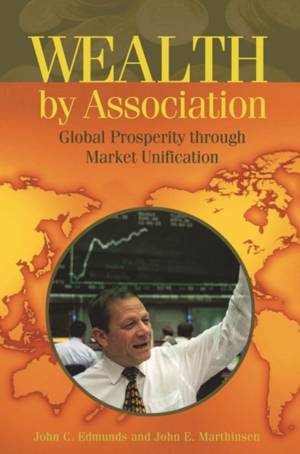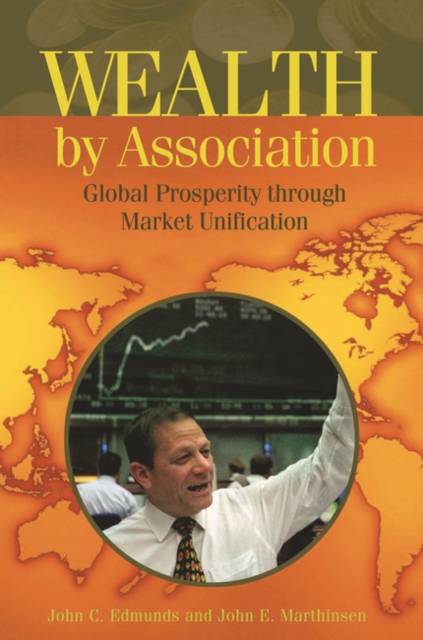
Vous voulez être sûr que vos cadeaux seront sous le sapin de Noël à temps? Nos magasins vous accueillent à bras ouverts. La plupart de nos magasins sont ouverts également les dimanches, vous pouvez vérifier les heures d'ouvertures sur notre site.
- Retrait gratuit dans votre magasin Club
- 7.000.000 titres dans notre catalogue
- Payer en toute sécurité
- Toujours un magasin près de chez vous
Vous voulez être sûr que vos cadeaux seront sous le sapin de Noël à temps? Nos magasins vous accueillent à bras ouverts. La plupart de nos magasins sont ouverts également les dimanches, vous pouvez vérifier les heures d'ouvertures sur notre site.
- Retrait gratuit dans votre magasin Club
- 7.000.0000 titres dans notre catalogue
- Payer en toute sécurité
- Toujours un magasin près de chez vous
Wealth by Association
Global Prosperity Through Market Unification
John C Edmunds, John E Marthinsen
Livre relié | Anglais
144,45 €
+ 288 points
Description
European monetary unification has produced a $15 trillion windfall to its member nations that is rarely discussed or accounted for in analyses of economic integration. Edmunds and Marthinsen argue that the reduction in cross-border risks--foreign exchange uncertainty, inflation differentials, competitive devaluations, and protectionism in financial services, among other--is directly responsible for an explosion in the value of fixed income assets and share prices. They explain how this wealth accumulation began to accrue even before the Euro was formally adopted. Could the same thing happen in Latin America or Asia?
Elegantly written and cogently argued, this book explores the ramifications of currency unification for each region in three scenarios: partial unification, dollarization, and full unification. The authors compute the increases in wealth created by these various levels of currency unification, provide spreadsheet models that examine the connections between the growth of financial wealth and real economic growth, and emphasize differentials in economic wealth among regions with time series maps that resize nations according to equity markets rather than geography.Spécifications
Parties prenantes
- Auteur(s) :
- Editeur:
Contenu
- Nombre de pages :
- 264
- Langue:
- Anglais
Caractéristiques
- EAN:
- 9781567205299
- Date de parution :
- 30-03-03
- Format:
- Livre relié
- Format numérique:
- Genaaid
- Dimensions :
- 166 mm x 246 mm
- Poids :
- 553 g







